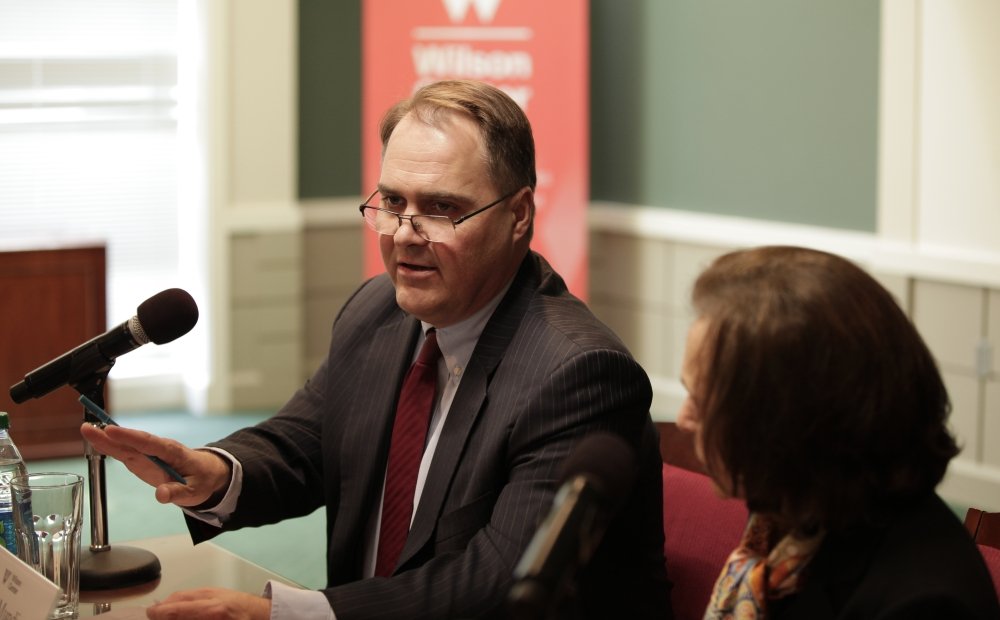The Special Tribunal for Lebanon: Why it Matters

Daryl Mundis, the Registrar of the Special Tribunal for Lebanon, provided background on the Tribunal and discussed its methodology and current proceedings.
On May 22, 2014, the Middle East Program at the Woodrow Wilson Center held a meeting, “The Special Tribunal for Lebanon: Why it Matters” with Mundis. Haleh Esfandiari, Director of the Middle East Program at the Wilson Center, moderated the event.
Mundis began by narrating a brief history of the Special Tribunal for Lebanon (STL), beginning with the February 14, 2005 attack that killed Lebanese Prime Minister Rafik Hariri and 21 others. He explained that after this attack, Lebanon asked the UN for assistance. The UN responded by issuing an investigative body, the UN International Independent Investigation Committee (UNIIIC). In order to properly assist Lebanon, the UN took steps toward creating the STL. The Tribunal was stalled in Lebanon’s parliament and never went to vote, resulting in the UN Security Council’s commission of the Tribunal through Resolution 1757. Mundis stressed that this resolution was crafted using careful language to ensure that there was no breach of parliamentary authority.
The Special Tribunal for Lebanon officially opened March 1, 2009. Mundis noted that the Tribunal has been mandated with ending impunity, bringing to trial those guilty of the February 2005 attack, and establishing a more solid foundation for the rule of law in Lebanon.
Mundis also discussed the general methodology of the Special Tribunal for Lebanon. He highlighted that the prosecution has been commissioned to investigate crimes and prosecute those guilty of the February 2005 attack, as well as any subsequent and connected attacks within the time frame of October 1, 2004 to December 12, 2005. Mundis noted that it is the duty of the pre-trial judge to rule the attack in question as a subsequent attack, and this ability to prosecute many connected incidences is a unique feature of this tribunal. He continued by identifying another unique feature of the Special Tribunal for Lebanon: its ability to conduct a trial of absentia, which was done only as a last resort if necessary.
After providing background on the Special Tribunal of Lebanon, Mundis gave details of its current proceedings. He began by naming those originally indicted, Salim Ayyash, Mustafa Badreddine, Hussein Oneissi, and Assad Sabra. He explained that a fifth suspect was eventually included in the trial, Hassan Merhi. Mundis contended that Ayyash and Badreddine, in particular, are alleged to be supporters of Hezbollah. After the addition of Merhi, the trial was adjourned and scheduled to resume June 18, 2014, a date which may be extended pending the approval of an appeal sent by Merhi’s defense. Mundis then began to describe the witnesses. As detailed by Mundis, there are already 30 witnesses, half of whom are using protective measures to hide their identities. Beyond the trial of these five suspected men, the Tribunal is conducting contempt proceedings against two media outlets: al-Jadeed and al-Akhbar. Mundis detailed the conflicting interests that the Tribunal balances with regard to the contempt proceedings. It must uphold the freedom of press, while protecting the rights of the witnesses, and maintain the integrity of the judicial system. Mundis ended the meeting, stressing that the Special Tribunal of Lebanon is funded 49 percent by the Lebanese government and 51 percent by volunteer members of the international community.
By Genevieve Casagrande, Middle East Program
Speaker
Hosted By

Middle East Program
The Wilson Center’s Middle East Program serves as a crucial resource for the policymaking community and beyond, providing analyses and research that helps inform US foreign policymaking, stimulates public debate, and expands knowledge about issues in the wider Middle East and North Africa (MENA) region. Read more
